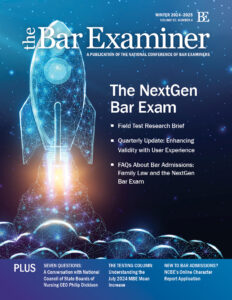November 2–5, 2017 | Palm Springs, California

The Council of Bar Admission Administrators (CBAA) held its Fall Meeting at the Hilton Palm Springs in Palm Springs, California, on November 2–5, 2017. Forty jurisdictions were represented by 85 attendees, which included 16 first-time attendees.
On Friday morning, CBAA chair Emily J. Eschweiler of Minnesota welcomed attendees to the conference and introduced Sue Steding, Dean of Students for the California Desert Trial Academy College of Law, who gave attendees an overview of the greater Palm Springs area. The 10 CBAA committees met throughout Friday morning and early afternoon to discuss a broad variety of issues. Among the issues discussed were day-of-exam logistics, challenges arising with the use of technology, cut score standard setting, Uniform Bar Examination (UBE) considerations such as local law components and eligibility requirements for UBE score transfer applicants, testing accommodations requests for adult onset diagnoses of mental impairments, and how jurisdictions handle character and fitness investigations for on-motion and UBE score transfer applicants.
The Friday afternoon program consisted of two plenary sessions. The first session, presented by an attorney member of the Maine Board of Bar Examiners, addressed changes in recent years in testing accommodations standards. The session discussed the basics of and relevant language from the Americans with Disabilities Act (ADA) and its regulations as they pertain to the bar exam, the significance of the ADA Amendments Act of 2008, the subsequent Department of Justice regulations and corresponding guidance pertinent to the bar exam, recent litigation in this area, and the practical application of these evolving standards for the bar exam.
The second plenary session on Friday explored recent trends in character and fitness. Representatives from the bar admission agencies in Connecticut, Delaware, and New Mexico spoke about the increase in certain character and fitness issues seen in those jurisdictions—such as financial responsibility issues and lack of candor or mischaracterization of prior disciplinary incidents. The representative from Delaware explained that jurisdiction’s process for investigating such incidents, including a new experimental process currently being tested.
The topic of the first plenary session on Saturday was the prosecution of cheating cases. The session began with guidance for pre-exam and day-of-exam planning and screening in order to prevent cheating in the first place, day-of-exam protocols for addressing cheating when it is detected, and an explanation of the process followed by NCBE to investigate cheating incidents. A representative from the New York State Board of Law Examiners categorized the various kinds of cheating cases (for instance, those stemming from observational evidence during the exam, as opposed to those arising from suspicious exam papers during grading or detected anomalies in exam results) and explained the steps taken in that jurisdiction for investigating a suspected cheating incident and prosecuting it if warranted, as well as resulting considerations and possible actions to take.
The final plenary session of the Fall Meeting had representatives from the bar admission agencies in Maryland, New Hampshire, and Pennsylvania discuss emergency procedures and the development of written policies for addressing a variety of possible disruptions during the examination, which could range from power outages, fire, or flooding to noise disruptions, temperature control failures, distracting examinees, or illness/injury of an examinee. Among the topics addressed by the speakers were factors to consider (e.g., size of jurisdiction, type and number of exam facilities, experience/training of exam personnel) when developing situation-specific written policies, the options for handling disruptions during the exam, and the pros and cons of written procedures for minor disruptions.
On Saturday morning, NCBE President Judith A. Gundersen briefed attendees about ongoing activities and initiatives at NCBE and other developments in the broader bar admissions community. The Fall Meeting concluded with the CBAA Business Meeting, during which jurisdiction administrators shared news from their jurisdictions and CBAA committee chairs reported on the committee meetings held the previous day.
Plenary Sessions
Friday, November 3
Testing Accommodations: The ADA, the DOJ, and the Courts: New Developments and What It Means for Bar Examiners
- Linda D. McGill, Shareholder, Bernstein Shur, Portland, Maine
Trends in Character and Fitness
- Kathleen B. Harrington, Deputy Director of Attorney Services, Connecticut Bar Examining Committee
- Sophie S. Martin, Executive Director, New Mexico Board of Bar Examiners
- Kelly Phillips Parker, Deputy Court Administrator and Executive Director, Board of Bar Examiners of the Delaware Supreme Court
Saturday, November 4
Prosecuting Cheating Cases
- Mark A. Albanese, Ph.D., Director of Testing and Research, NCBE
- Christine Kenefick, Deputy Executive Director, New York State Board of Law Examiners
In-Exam Testing Incidents: Are Written Policies Your Friend or Foe?
- Gicine P. Brignola, Executive Director, Pennsylvania Board of Law Examiners
- Sherry M. Hieber, General Counsel, New Hampshire Supreme Court Office of Bar Admissions
- Jeffrey Shipley, Secretary, Maryland State Board of Law Examiners
Palm Spring in Photos
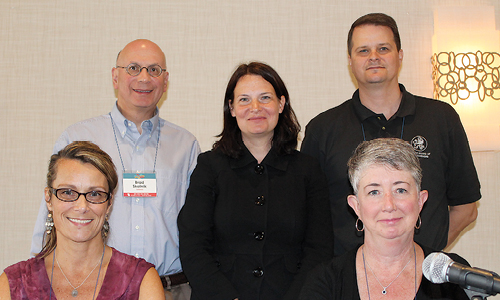
2017–2018 CBAA Executive Committee
Front row: Kathleen B. Harrington (CT), Marilyn J. Wellington (MA)
Back row: Bradley W. Skolnik (IN), Emily J. Eschweiler (MN), Mark A. Huntsberger (FL)
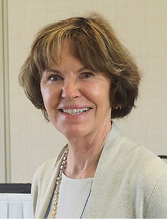
Linda McGill (ME)
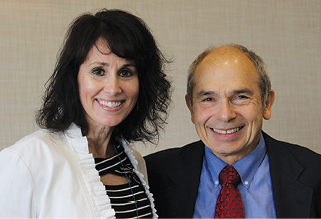
Christine Kenefick (NY), Mark Albanese (NCBE)
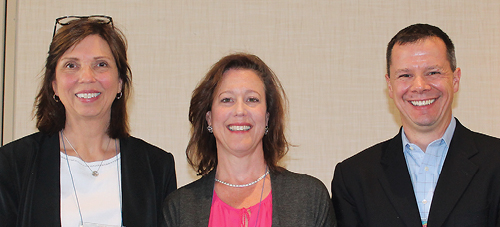
Sherry Hieber (NH), Gicine Brignola (PA), Jeff Shipley (MD)
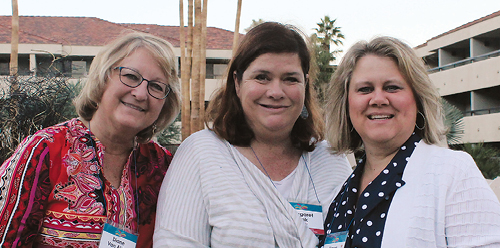
Diane Van Aken (MI), Margaret Funk (CO), Sharon Orlowski (CO)
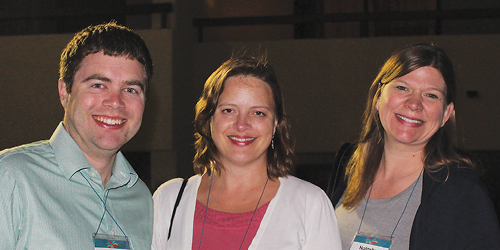
A.J. Dordel, Emily Corson, Natasha Karn (all MN)
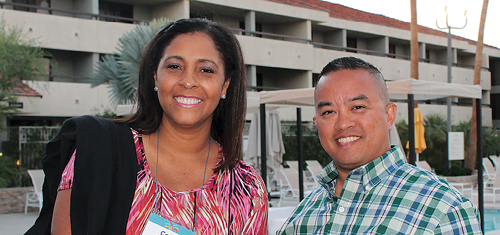
Carol Mitchell (AZ), Gus Quiniones (WA)
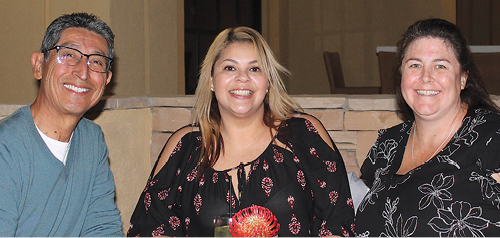
Mark Torres-Gil, Amy Nuñez, Christina Doell (all CA)
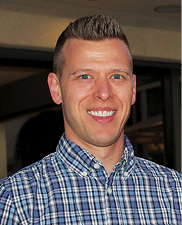
Keith Wilkinson (MI)
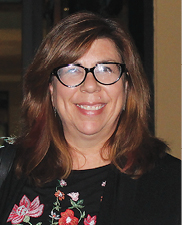
Lita Sandoval (NM)

